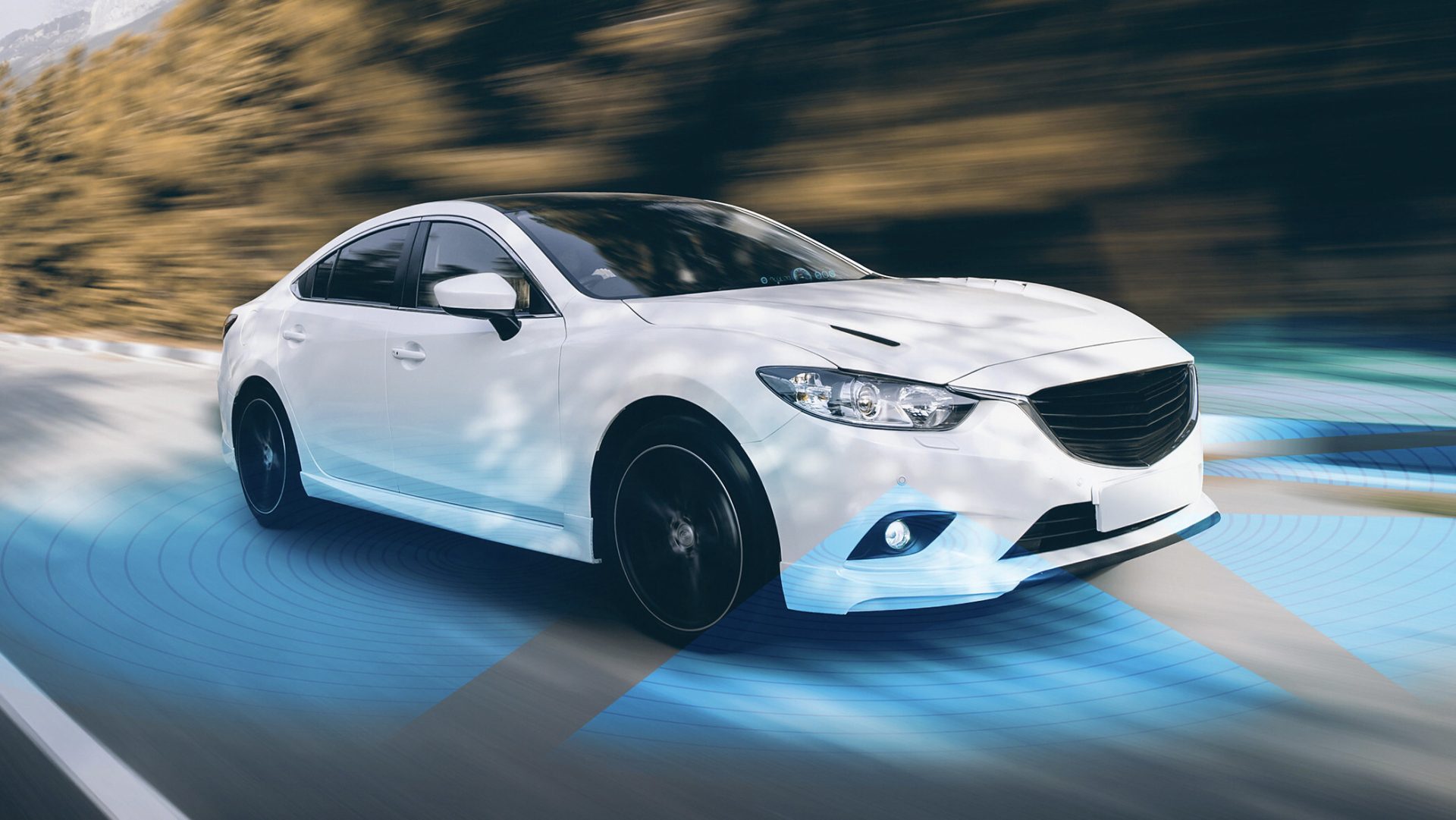- The industry’s first high-speed, single-chip lidar laser driver can detect objects faster and more accurately than discrete solutions.
- New high-performance automotive bulk acoustic wave (BAW)-based clocks are 100 times more reliable than quartz-based clocks, enabling safer operation.
- Automotive manufacturers can enhance front and corner radar sensor functions with TI’s newest millimeter-wave (mmWave) radar sensor.
Texas Instruments (TI) introduced a new portfolio of automotive lidar, clock and radar chips to help automakers transform vehicle safety by bringing more autonomous features to a wider range of cars. TI’s new LMH13000, the industry’s first integrated high-speed lidar laser driver, delivers ultra-fast rise time to improve real-time decision-making. The industry’s first automotive BAW-based clocks, the CDC6C-Q1 oscillator and LMK3H0102-Q1 and LMK3C0105-Q1 clock generators, improve advanced driver assistance system reliability. Addressing evolving ADAS needs, TI’s new AWR2944P mmWave radar sensor offers advanced front and corner radar capabilities.
“Our latest automotive analog and embedded processing products help automakers both meet current safety standards and accelerate toward a collision-free future,” said Andreas Schaefer, TI general manager, ADAS and Infotainment. “Semiconductor innovation delivers the reliability, precision, integration and affordability automakers need to increase vehicle autonomy across their entire fleet.”
Real-time decision-making with 30% longer distance measurements
A crucial technology for the future of safe autonomous vehicles, lidar provides a detailed 3D map of the driver’s surroundings. This enables vehicles to accurately detect and quickly react to obstacles, traffic and road conditions to improve real-time decision-making. TI’s new LMH13000 is the industry’s first integrated high-speed laser driver to deliver an ultra-fast 800ps rise time, achieving up to 30% longer distance measurements than discrete solutions. With integrated low-voltage differential signaling (LVDS), complementary metal-oxide semiconductor and transistor-transistor-logic control signals, the device eliminates the need for large capacitors or additional external circuitry. This integration also supports an average 30% reduction in system costs while reducing solution size by four times, empowering design engineers to discretely mount compact, affordable lidar modules in more areas and across more vehicle models
As lidar technology reaches higher output currents, vast variations in pulse duration over temperature make it challenging to meet eye safety standards. TI’s LMH13000 laser driver provides up to 5A of adjustable output current with only 2% variation across its -40C to 125C ambient temperature range, compared to discrete solutions that can have up to 30% variation. The device’s short pulse-width generation and current control enable the system to meet Class 1 U.S. Food and Drug Administration eye safety standards.
Design a reliable ADAS with the industry’s first automotive BAW-based clocks
Electronics in ADAS and in-vehicle infotainment systems must work reliably while facing temperature fluctuations, vibrations and electromagnetic interference. With TI’s BAW technology benefits, the new CDC6C-Q1 oscillator and LMK3H0102-Q1 and LMK3C0105-Q1 clock generators increase reliability by 100 times compared to traditional quartz-based clocks, with a failure-in-time rate of 0.3. Enhanced clocking precision and resilience in harsh conditions enable safer operation, cleaner data communication, and higher-speed data processing across next-generation vehicle subsystems.
Additionally, the company unveiled a new front and corner radar sensor, the AWR2944P, building on TI’s widely adopted AWR2944 platform. The new radar sensor’s enhancements improve vehicle safety by extending detection range, improving angular accuracy, and enabling more sophisticated processing algorithms. Key enhancements include:
- An improved signal-to-noise ratio.
- Increased computational capabilities.
- A larger memory capacity.
- An integrated radar hardware accelerator that allows the microcontroller and digital signal processor to execute machine learning for edge artificial intelligence applications.
TI’s new automotive lidar, clock and radar solutions build on the company’s commitment to helping engineers design adaptable ADAS for a safer, more automated driving experience.







